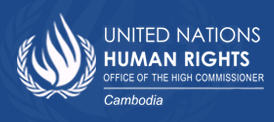Gender Equality and Human Rights
Gender equality is at the very heart of human rights and United Nations values. A fundamental principle of the United Nations Charter adopted by world leaders in 1945 is "equal rights of men and women", and protecting and promoting women's human rights is the responsibility of all States. The High Commissioner for Human Rights recently pledged to be a Geneva Gender Champion, committing to advance gender equality in OHCHR and in international fora.
Yet millions of women around the world continue to experience discrimination:
- Laws and policies prohibit women from equal access to land, property, and housing
- Economic and social discrimination results in fewer and poorer life choices for women, rendering them vulnerable to trafficking
- Gender-based violence affects at least 30% of women globally
- Women are denied their sexual and reproductive health rights
- Women human rights defenders are ostracized by their communities and seen as a threat to religion, honour or culture
- Women’s crucial role in peace and security is often overlooked, as are the particular risks they face in conflict situations
Moreover, some groups of women face compounded forms of discrimination - due to factors such as their age, ethnicity, disability, or socio-economic status - in addition to gender discrimination. Effectively ensuring women’s human rights requires, firstly, a comprehensive understanding of the social structures and power relations that frame not only laws and politics but also the economy, social dynamics and family and community life. Harmful gender stereotypes must be dismantled, so that women are no longer viewed in the light of what women "should" do and are instead seen for who they are: unique individuals, with their own needs and desires.
Cambodian context*
In Cambodia specifically, gender inequality persists in almost every facet of life, including - but not limited to - the economy, education, politics, health, marriage, and security.
Economy:
- Gender disparities persist within employment groups (e.g. women dominate the garment sector, men dominate the construction sector)
- 70% of women are engaged in vulnerable employment
- Women are underrepresented in the public sector: 77% of public sector employees are men and 85% of "decision-makers" (senior officials, managers) are men
Education:
- 24% of Cambodian women are illiterate (in comparison to 16% of men within the same age group)
- Girls have less educational opportunities than boys - primary education benefits both sexes equally, but the number of girls reduces when it comes to higher education - only 40% of women have completed secondary education
- 45% of Cambodian women believe it is more important to educate a son than a daughter
Politics:
- The National Assembly has a 20% representation of women
- In 2008, there was only one female minister in the Cambodian cabinet and only 8.2% of the secretaries of state were women
Health:
- Women have restricted access to health systems
- The maternal mortality rate is high - 170 maternal deaths per 100,000 live births
Marriage:
- The Cambodian Demographic and Health Survey (2005) found that 52% of married women had not participated in the choice of their spouse
Security:
- In a 2015 survey, 1 out 5 women reported experiencing physical and/or sexual violence
- 50% of women accept at least one out of six specified reasons that justifies wife beatings
- In a 2013 survey, more than 35% of men who had been/are currently in a relationship reported they had used physical or sexual violence against their partner, and 20% of surveyed men reported having perpetrated rape
*Data drawn from:
The Cambodia demographic and health survey (2014)
- download in
English
The national survey on women’s life and health experiences in Cambodia - download in English
The UN multi-agency report,
Why do some men use violence and how can we prevent it? (2013) - download in
English
The Ministry of Women's Affairs'
Cambodia Gender Assessment 2008
The Ministry of Women's Affairs'
Cambodia Gender Assessment 2014
USAID/Cambodia Gender Assessment 2010 - download in
English
OHCHR's 2012 report,
Women and the right to adequate housing:
English | Khmer
OHCHR's human rights success stories in the area of women and gender equality:
Experiences of Gender-Based Violence in Urban Poor Rental Housing Communities of Phnom Penh
Read the
full report
